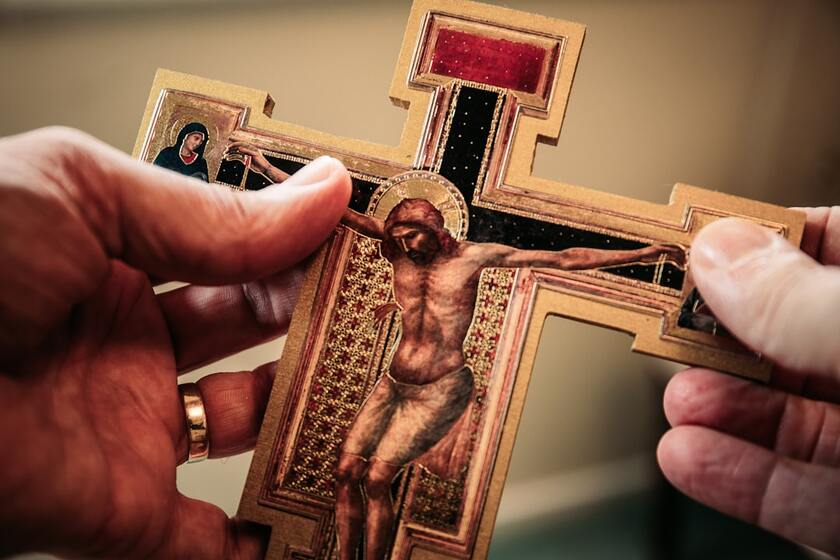I’m numb. Torn. Upset that I’m not more upset.
Maybe I’ve spent too much time with memento mori meditations. But I don’t think I’m cold to it. I feel the weight, the ache. But I don’t want to acknowledge it, not fully. Not out loud. On one hand, the parent in me is terrified to even whisper that such a thing could happen. On the other, I know the truth we try so hard to forget: vanity of vanities, all is vanity. We are vapor, here for a breath, living on a speck of dust suspended in a sunbeam.
If we all die, what’s the difference between 8 years or 80? Why do we mourn the deaths of children instead of celebrating their eternal rewards?
And yet, the most baffling and somehow most comforting words in all of scripture are just two:
Jesus wept.
The same God who questioned Job from the whirlwind, who spun stars into being and dared him to answer, “Were you there when…” That same God cried. He cried at the tomb. He cried even though He knew He would raise Lazarus. He entered into our grief not as an observer but as one of us.
Did Jesus weep for the children swept away in the Guadalupe River flood, as He knelt in agony at Gethsemane? Maybe. For sure they are in the furnace of His flaming heart, and we can indeed comfort Him there. And maybe it comforts them too.
I don’t understand. I probably never will. But maybe that’s the beginning of real faith, somewhere in the space between the silence of the tomb and the sound of a God who still weeps with us.
The problem of pain is a metaphysical mystery for which I have no words and no plausible answer, only guttural sighs.
Yes, it’s still true: “The stars at night are big and bright.” But when Yahweh made His covenant with Abraham, it wasn’t under a glittering sky. It was midday—hot, still, and empty. Abraham couldn’t see a single star. He acted on sheer faith, trusting in what wasn’t visible.
And maybe that’s what faith often is: trusting the stars are there, even when the sky looks empty and lifeless and
and
and
Sigh



















